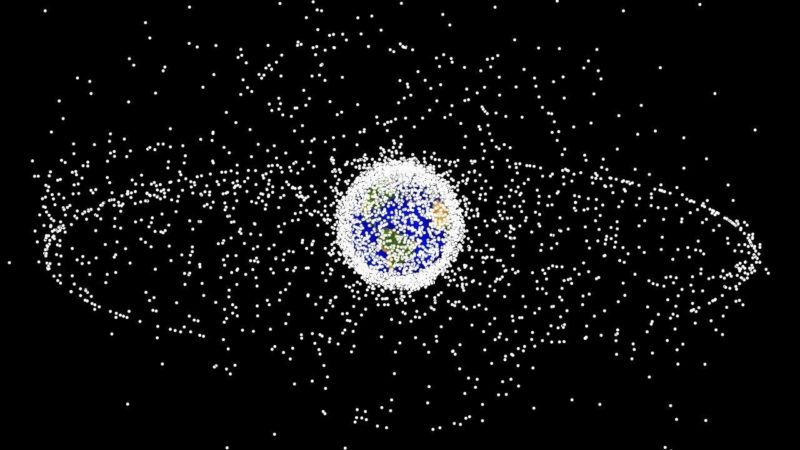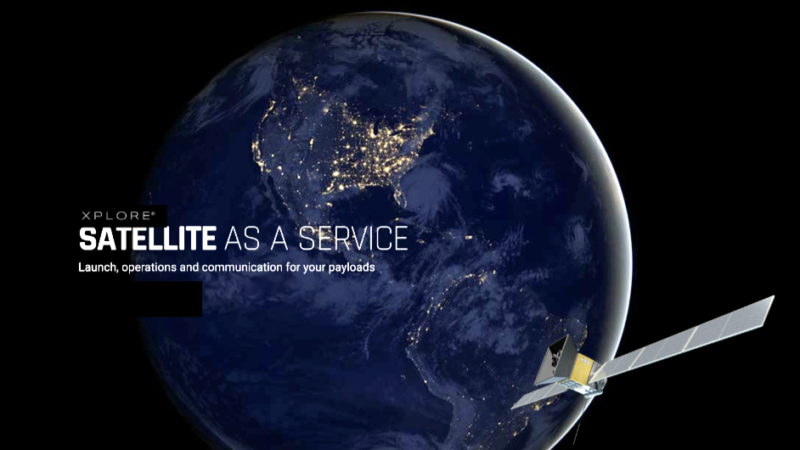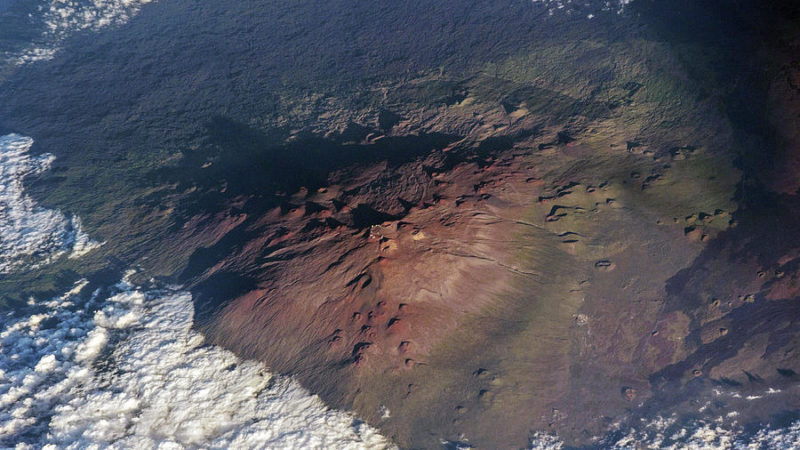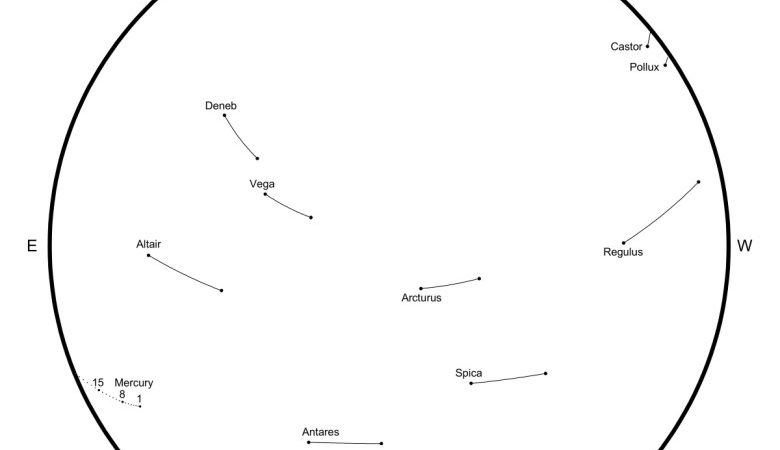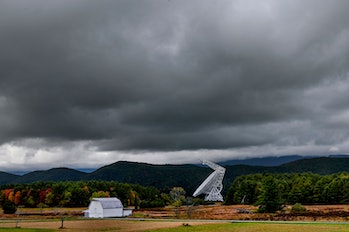Geek of the Week: A star at Getty Images, Dan Gifford turned from astronomy to computer vision – GeekWire

Growing up, Dan Gifford was encouraged to use both the creative and analytical parts of his brain in a variety of ways and to be well rounded.
Gifford played lots of sports, and was competitive at golf and long distance running. At 13, he joined a local astronomy club, and the passion took him from looking through a 6-inch telescope at community events to sitting behind the controls of a 6.5-meter telescope during his graduate work.
Gifford earned a PhD in astrophysics from the University of Michigan in 2015, but today instead of looking into space, our Geek of the Week is searching the expanse of photographs at Getty Images as a senior data scientist specializing in computer vision.
“Having a deep understanding of photography as an art has helped me communicate with the many creative visual experts that work at Getty Images,” Gifford said. “Those relationships have resulted in projects that have benefited our team as well as theirs. While I do miss many aspects of astronomy as a profession, one unique thing to that field is that the night sky is open to anyone! Despite my career change, my passion for the field has not waned. I still attend local astronomy events and stay up to date with the latest research.”
Gifford and teams at Getty utilize advanced algorithms to help customers — many of them companies with a recognizable brand — find the perfect visuals for their next campaign.
“The brand can be about what is in the image, how the image is composed, the style of lighting, or the color palette,” Gifford said. “Understanding our content and customers across these, and many more dimensions allows us to recommend the visuals that resonate with those creatives, and save them the effort of searching across our library of over 200 million images.”
In his spare time, Gifford enjoys vacationing with family and photographically documenting his life with his wife and 1-year-old son. He still loves to golf and train for long runs.
Learn more about this week’s Geek of the Week, Dan Gifford:
What do you do, and why do you do it? During my graduate work, my passion for observational astronomy morphed into a love of visual data and algorithms to make sense of it. After finishing my degree, I was hired as a data scientist at Getty Images and began to grow my expertise around AI and computer vision. Now as a senior data scientist focused mostly on computer vision, I collaborate with many different teams at Getty Images to solve challenging problems in matching imagery with our customer needs. Like my work studying galaxies at the edge of the universe, understanding our imagery and customers is a complex and difficult challenge that requires leveraging state-of-the-art algorithms. In many cases, the problems I work on are completely unique and have never been solved before. That’s exactly the work I love to do.
What’s the single most important thing people should know about your field? While the words artificial intelligence and machine learning are everywhere at the moment, they are instilling both optimism and fear at the same time. AI is just the latest tool we have developed to solve challenging problems, but what problems we, as a society, solve or create is up to us, not the algorithm. In cases such as algorithmic bias, it’s not the algorithm that decided to be biased; instead, the human responsible for training utilized biased or incomplete data. In many ways, the algorithms we create act as a mirror revealing and amplifying traits in our data that might have been missed before. I see this as an incredible opportunity to uncover and discuss these existing biases so that our systems can improve and become more inclusive than they would without them.
Where do you find your inspiration? I am excited by products that find a way to leverage AI and make it feel natural. It’s easy for companies that invest heavily into AI to to hype the fact their products rely on advanced algorithms, but if the product is solving a critical problem then very few users will care about how it works and fall in love with what it allows them to do.
What’s the one piece of technology you couldn’t live without, and why? The camera on my iPhone. It’s astounding how much I rely on it to capture both images and video as my son grows and learns new things.
What’s your workspace like, and why does it work for you? My workspace includes a laptop, two monitors, and a desktop around a sit-stand desk. The large screens are great for working with images, and the desktop contains a GPU for efficient neural network training. I began using a sit-stand desk several years ago and now don’t know what I’d do without one. The space is well lit with natural light because directly behind me is a window overlooking CenturyLink Field where the Seahawks and Sounders call home. Not a bad place to go to work everyday!
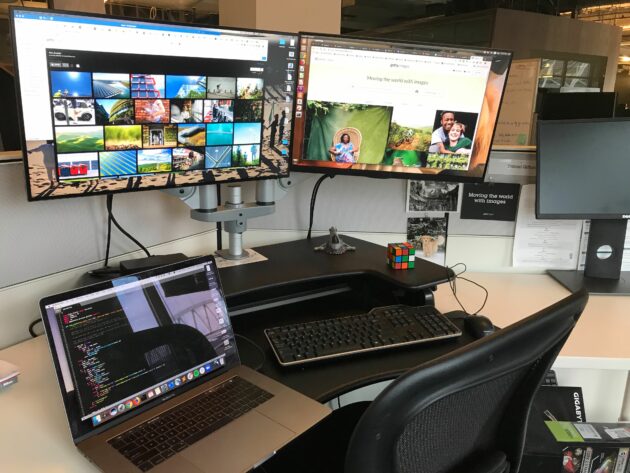
Your best tip or trick for managing everyday work and life. (Help us out, we need it.) Two years ago I turned off all email and Slack push notifications to my phone. If I have time to check them, then I do; otherwise, I don’t let them distract me from what I’m focused on in the moment.
Mac, Windows or Linux? Mac and Linux.
Kirk, Picard, or Janeway? Picard.
Transporter, Time Machine or Cloak of Invisibility? Transporter.
If someone gave me $1 million to launch a startup, I would … First hire smart, passionate people to experiment with ideas.
I once waited in line for … Five hours for the ride Rocket Rods at Disneyland.
Your role models: My Grandpa. He has lived a full life both professionally and personally, and I hope I can achieve similar success in my life.
Greatest game in history: I love college football and had season tickets to Michigan games during grad school. The most insane game I watched live was the Michigan vs. Notre Dame night game in 2011. Three touchdowns in the final 1:22 to give Michigan the victory.
Best gadget ever: Being a dad has shown me just how valuable the zipper is to humanity’s sanity.
First computer: A Gateway PC.
Current phone: iPhone 7.
Favorite app: Google Photos.
Favorite cause: water.org.
Most important technology of 2019: Streaming services.
Most important technology of 2021: Electric cars.
Final words of advice for your fellow geeks: Let your curiosity get the best of you!
Twitter: @danwgifford
LinkedIn: Dan Gifford

